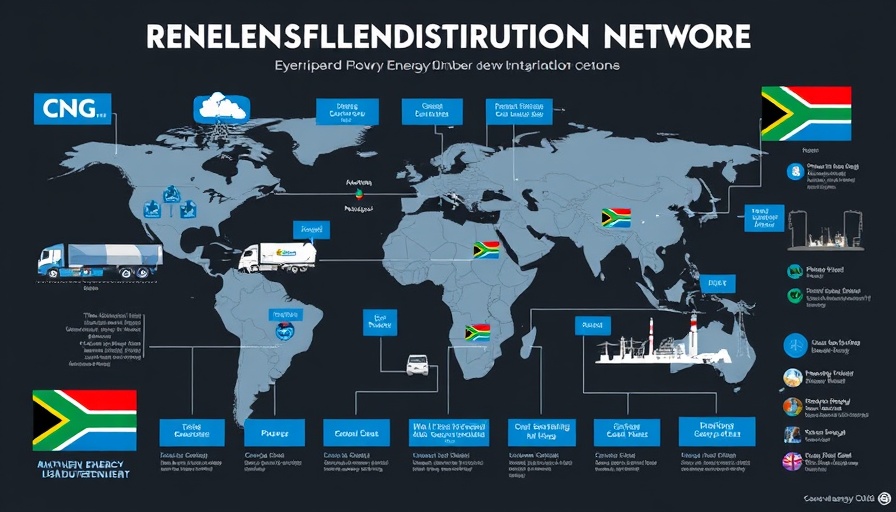
The Dawn of a New Energy Era in Southern Africa
Southern Africa is on the brink of a transformative shift as it eyes the potential of the Southern African Power Pool (SAPP) to reshape its electricity landscape. With the immense industrial demand for energy, regional leaders believe that a robust electricity trading market could serve as a beacon for energy access and security throughout the region. Kgosientsho Ramokgopa, the minister of electricity and energy, champions this vision, asserting that by harnessing the generation capabilities of each member country, collective energy needs can be met, paving the way for sustainable growth.
Understanding the Southern African Power Pool
Established to enhance electricity trade, the SAPP is comprised of several member countries collaborating to optimize energy production. The idea is simple yet profound: by pooling resources, nations can ensure that energy is not only generated but effectively distributed where it is most needed. This interconnectedness is critical in times of fluctuating demand and supply, notably driven by industrial consumers.
Why Industrial Consumers Matter
The rise in industrial activity across Southern Africa stipulates an urgent need for reliable power sources. Industries are pivotal for economic stability, creating jobs and driving expansion. However, without the necessary electricity infrastructure, growth could stagnate. The SAPP offers a solution by promoting trade among nations, which can facilitate energy access even in peak times of demand.
Future Predictions: How SAPP Can Spark Economic Growth
The intertwining of the SAPP with regional economic strategies could foster a new age of industrialization. Appropriately leveraging renewable energy resources—such as solar and wind—and integrating them into the SAPP's framework may provide the spark needed for technological innovation and energy transformation. As businesses harness these renewables, we could see not only advancements in sustainability but also a market ripe for tech investments focused on smart grids and automation.
Diverse Perspectives: Is SAPP Enough to Solve Energy Issues?
While the SAPP presents a compelling case for collaboration, not all stakeholders are convinced of its efficacy. Critics point to bureaucratic hurdles and potential energy inequalities among member states. Balancing interests requires not only investment in infrastructure but also a commitment to energy equity. Leaders must ensure all nations can access affordable electricity, thereby avoiding a disparity that could lead to tensions.
Innovations to Watch: Tech's Role in Energy Solutions
Technological advancements such as smart devices, IoT solutions, and blockchain applications are set to revolutionize how energy is managed within the SAPP framework. Smart grids, which incorporate real-time data analytics, are crucial for efficiency and sustainability. Meanwhile, navigating cybersecurity concerns will be paramount as interconnected systems become more prevalent.
What This Means for You: Actionable Insights
For C-level executives and decision-makers within the industrial sector, understanding these developments is essential. Strategic planning around energy consumption and investment in green technologies can yield significant financial returns. Staying informed about regional energy policies and participating in dialogues may also present opportunities for collaboration and innovation.
Your Role in Shaping Energy Futures
As an integral part of the business landscape, your engagement with initiatives like the SAPP can help shape the future of energy in Southern Africa. Whether through advocacy for innovative technologies or direct investments in renewable infrastructure, your role in this evolving narrative is critical.
Embracing the unfolding story of the Southern African Power Pool can not only turn the tides for businesses but elevate regional economic resilience, making it a crucial area for collective support and innovation.
 Add Row
Add Row  Add
Add 




Write A Comment